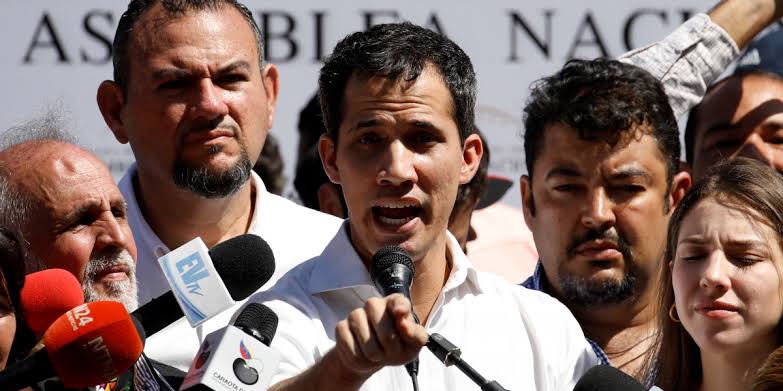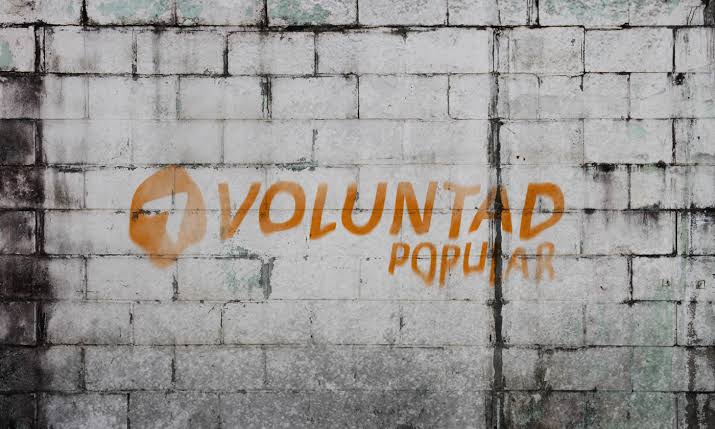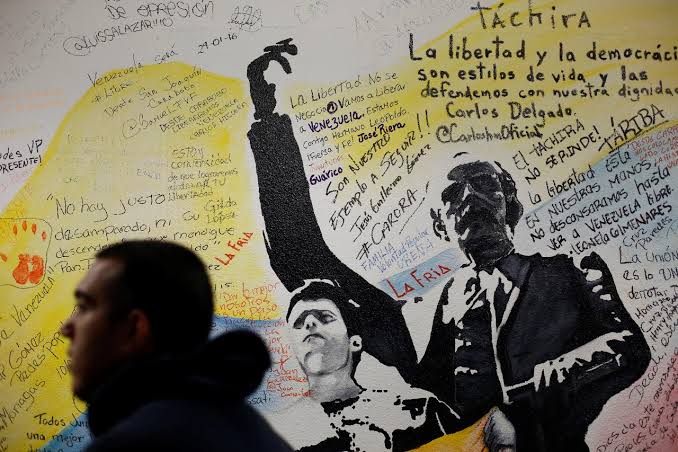RIO DE JANEIRO, BRAZIL – A corruption scandal is shaking the right-wing opposition in Venezuela. As the research platform armando.info has disclosed, nine deputies from several opposition parties have aided businessmen close to the government in bypassing US sanctions.
This involves the Maduro government’s Local Production and Supply Committees (CLAP), which have been distributing food packages to the population for symbolic prices since 2016. Three of the suspects belong to the ‘Voluntad Popular’ party of Juan Guaidó, chairman of parliament and self-proclaimed interim president of the country.

At the heart of the scandal are Colombian businessmen Alex Saab, Álvaro Pulido and Carlos Lizcano. Saab and Pulido are closely linked to the CLAP agenda and were sanctioned by the US government last July. Lizcano is said to be a strawman for the two. The suspected deputies are part of the Parliamentary Control Committee.
They reportedly campaigned in return for payment at official institutions in Colombia and the USA to stop investigations against Lizcano in order to facilitate his dealings. On paper, Lizcano is also the owner of Salva Foods, which operates the so-called Tiendas Clap.
They were awarded the contract for the obscure privatization of the state-owned supermarket chain Abastos Bicentenario. The Tiendas Clap use the same logo as the food packages, but are purely private and sell overpriced goods.
Self-proclaimed interim president Juan Guaidó announced last Monday that he would provide an explanation. It is an “attempt by the dictatorship to sully a number of deputies” to prevent his re-election. The backdrop to this is that the new legislative year will begin on January 5th, when the presidency of the country’s parliament will be redefined.
Originally, the four largest opposition parties had agreed to rotate among themselves annually. Since Guaidó legally derives entitlement to the interim presidency from the parliamentary presidency, the parties agreed in September to re-elect him on January 5th.
But there are further charges against Guaidó: at the end of November he dismissed his “ambassador” in Colombia, the veteran opposition politician Humberto Calderón Berti. Calderón Berti accused Guaidó’s associates of embezzling funds after attempting to bring aid across the border from Colombia in February.
Among other issues, this would include funds of unknown origin that were intended for deserting soldiers but instead were spent on prostitutes and alcohol. The accusations have been made since June, but they further exacerbate Guaidó’s situation. It is becoming increasingly difficult for him to portray himself as a clean alternative to Maduro.

Within the opposition there is now the threat of a mud-slinging battle. Politician José Brito, who has been expelled from his ‘Primero Justicia’ party and is involved in the scandal surrounding the CLAP agenda, accused Guaidó of deliberately embezzling money.
In a letter, a group of 70 deputies had asked the president of parliament to investigate the allegations of embezzlement concerning humanitarian aid in February. Moreover, in early December, the opposition’s parallel institution in exile since August 2017, Venezuela’s Supreme Court, split into two factions. The reason behind this was a dispute over the election of the new presidency.
On Tuesday, Luis Stefanelli of the ‘Voluntad Popular’ party also claimed that he had been offered US$1 million to vote against Guaidó as parliamentary president on January 5th. According to the deputy, there is a conspiracy to elect another opposition candidate to become the head of parliament, counting on the votes of the ruling United Socialist Party of Venezuela (PSUV).
According to media reports, there are indications that the US government could disengage from Guaidó. US media company Bloomberg reported Friday that President Donald Trump no longer believes that Guaidó can replace Maduro. Now he is considering “more aggressive strategies” and cooperation with Russia. Michael Kozak, the US State Department’s Latin America commissioner for Venezuela, brought into play the option of a joint interim government of Chavistas and right-wing opposition.

He stressed that the USA would only recognize Guaidó as interim president because of his function as parliamentary chair. US Secretary of State Mike Pompeo then declared on Twitter that Guaidó “embodies the struggle of the Venezuelan people”. The US government is “totally in favor” of him.
Internally, Guaidó has been criticized for some time. The prospects of a swift change of government that he embodied have not existed for months. Guaidó neither succeeded in drawing the Venezuelan military to his side, nor did the US sanctions lead to an institutional and social collapse in the country.
Guaidó can hardly mobilize anyone to demonstrate on the streets. After the failed dialogue with the Maduro government in September, Guaidó has to stand by and watch as the smaller, more moderate wing of the opposition leads its own negotiations with the government over former presidential candidate Henri Falcón.
The split of the right-wing opposition, which led to a partial boycott in the controversial presidential elections in May 2018, has thus arisen once again. The recent scandals have further weakened Guaidó’s position.

